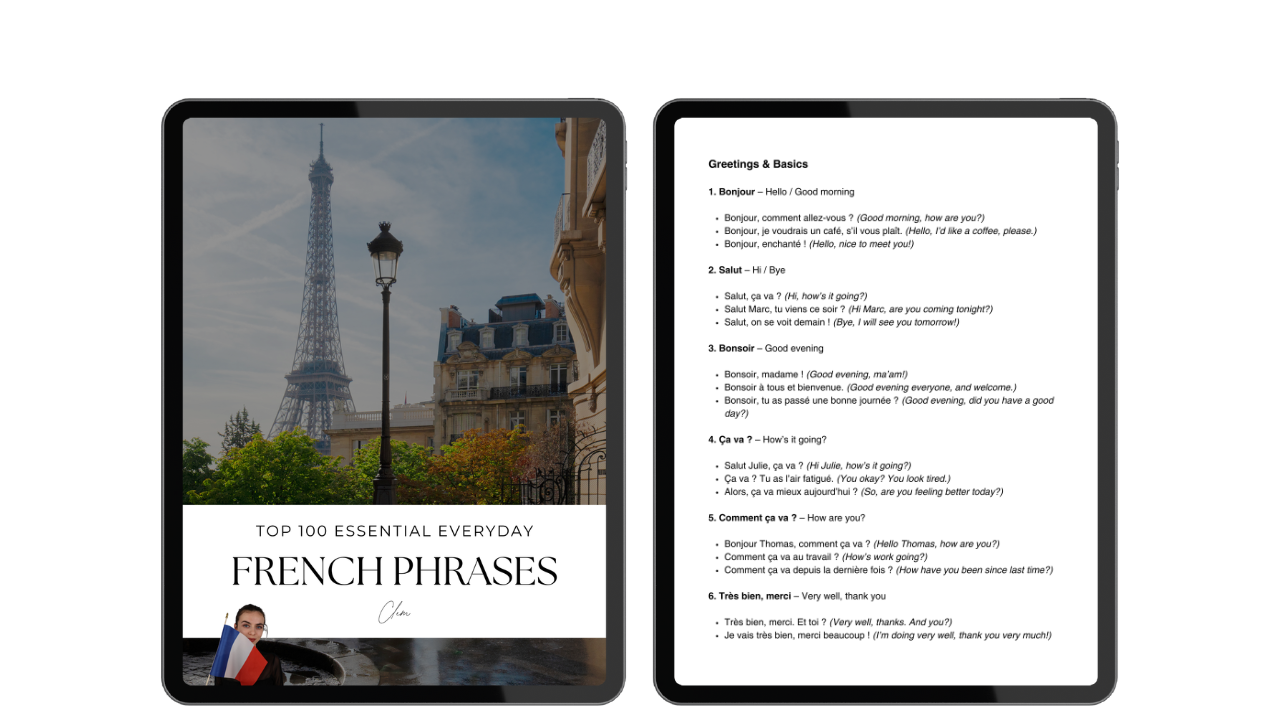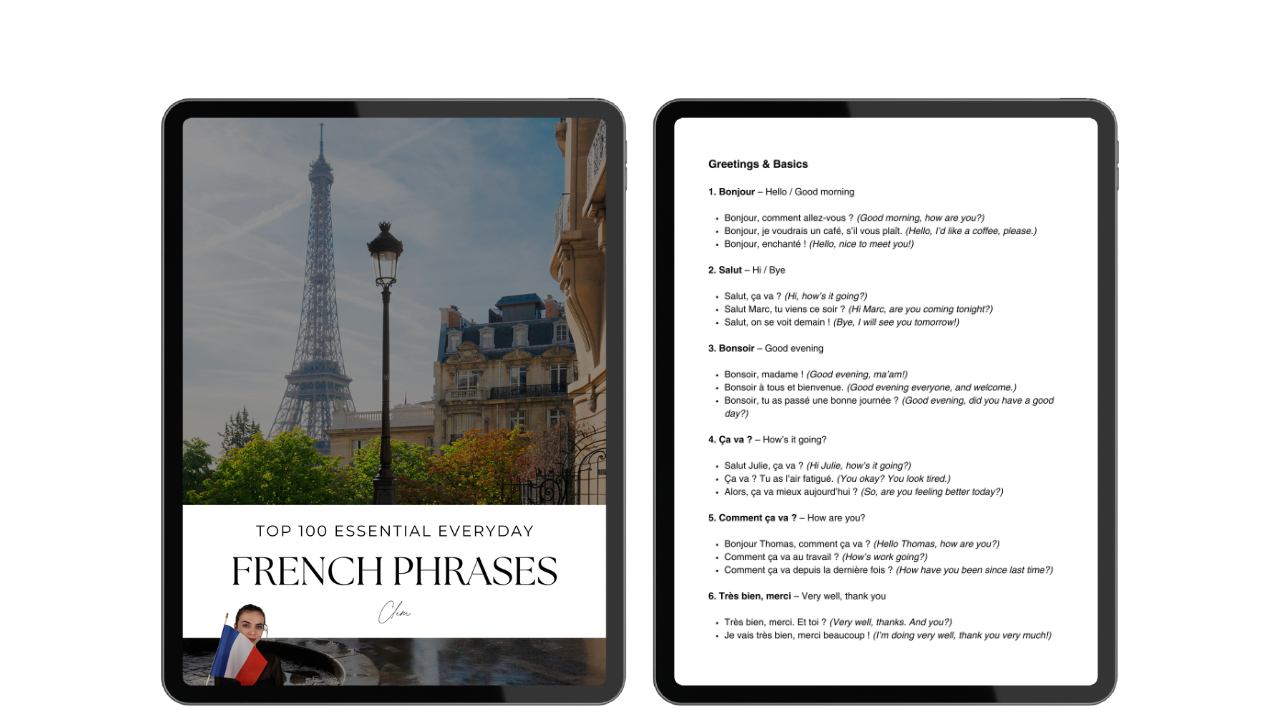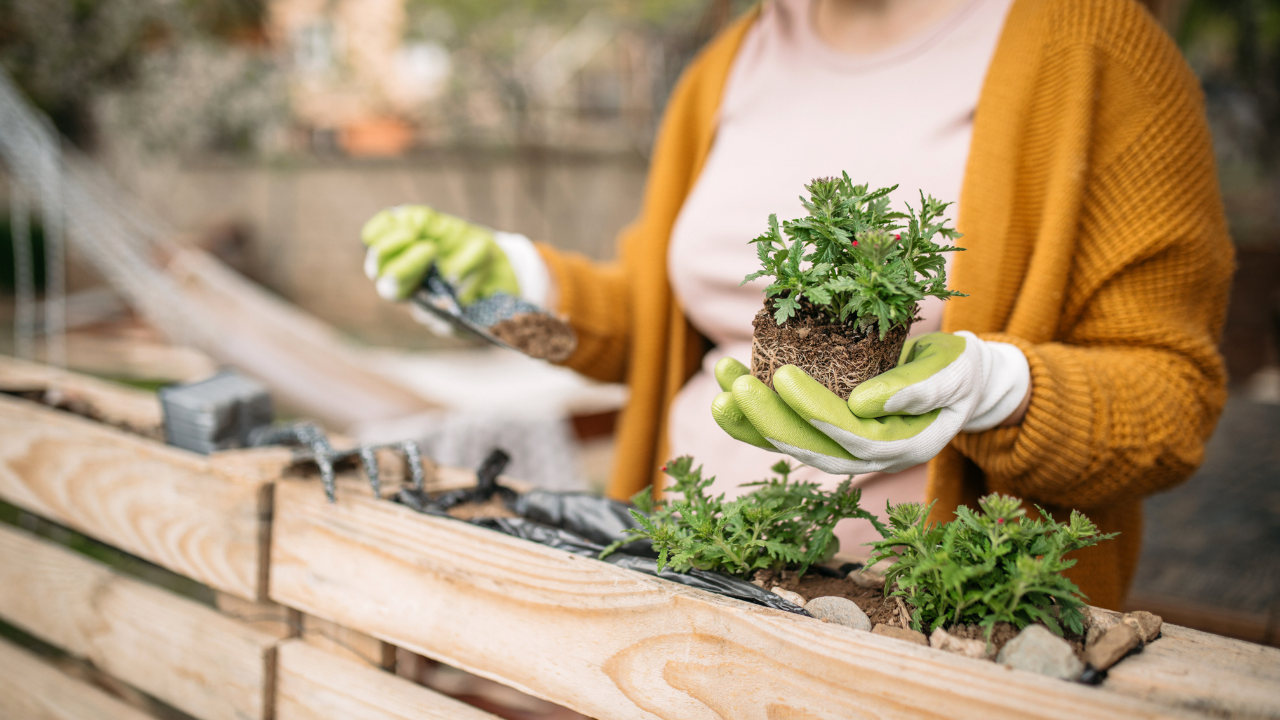
How to Talk About Your Hobbies in French
Jun 17, 2025So, you’ve learned how to introduce yourself in French—“Je m’appelle Marie, j’ai 28 ans, j’habite à Lyon…” Great start. But now someone asks: “Qu’est-ce que tu aimes faire pendant ton temps libre ?” And you freeze. How do you say binge-watching Netflix in French? Or that you’re obsessed with baking banana bread?
Don’t worry. In this post, we’re going to break down how to talk about your hobbies in French like a real human being—not like a dusty grammar book. You’ll learn useful verbs, phrases, and expressions to share your passions, sound more natural, and actually enjoy chatting in French.
Grab a coffee (or a glass of wine, no judgment), and let’s dive in.
Why Talking About Hobbies in French Is a Game-Changer in Language Learning
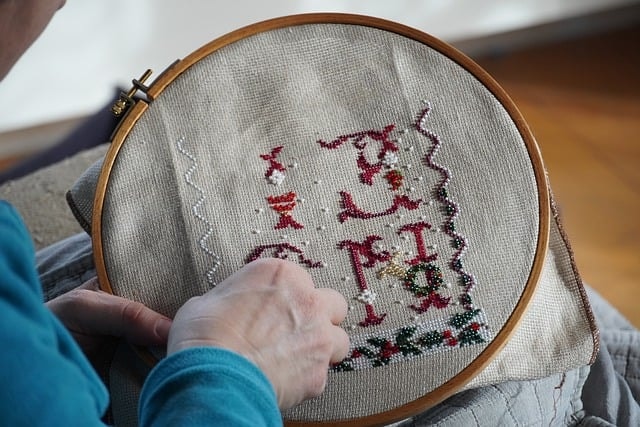
Think about it. When you meet someone new, what do you usually talk about?
Work? Maybe. The weather? Unfortunately, yes. But hobbies? That’s where real connections happen.
When you know how to talk about what you love doing, suddenly conversations flow. You get excited. You use real emotion. And people remember you—not as “the person trying to speak French,” but as the one who loves rock climbing, or knitting, or photography.
Mastering all the vocabulary related to hobbies and leisure activities is crucial. It allows you to express your interests clearly and confidently. Additionally, practicing French pronunciation through audio files and repetition exercises can significantly improve your fluency and enjoyment. Engaging in these activities helps integrate these terms into your conversations about pastimes.
So let’s start there.
Want practical French you can use right away? Grab your FREE eBook – Top 100 Essential Everyday French Phrases.
Introduction to French Culture
French culture is renowned for its rich heritage and diverse interests, making it a fascinating subject for anyone learning the language. Understanding French culture is not just about mastering the language; it’s about connecting with French speakers on a deeper level. One of the best ways to do this is by exploring common hobbies and leisure activities.
In France, people cherish their free time and often engage in a variety of hobbies. From sports like le foot (soccer) and le basket (basketball) to artistic pursuits such as painting and music, French culture offers a wide array of interests. By immersing yourself in these activities, you can gain a more profound appreciation of the French way of life and improve your language skills simultaneously.
Whether it’s enjoying a leisurely afternoon in a café, attending a local music concert, or participating in a community sports event, these experiences provide valuable insights into French culture. So, dive into the world of French hobbies and discover how they can enrich your language learning journey.
First, You Need Some Handy Verbs
Most hobbies in French are introduced with either “j’aime” (I like), “je préfère” (I prefer), or “je fais” (I do/practice). Here are a few key verbs to keep in your back pocket:
-
aimer – to like/love → J’aime lire des romans policiers.
-
adorer – to love → J’adore faire du yoga.
-
détester – to hate → Je déteste courir… sauf quand il pleut !
-
faire – to do → Je fais de la peinture.
-
jouer – to play → Je joue au tennis.
Using the correct word and specific verbs when discussing hobbies is crucial for effectively articulating your interests in French. These five alone will carry you through most conversations about hobbies.
Also read: The History Of The French Language
The Golden Formula: Je + verb + hobby
You don’t need anything fancy. Start with this simple structure:
👉 Je + [aimer/adore/déteste/préfère] + [activity]👉 Je fais / Je joue + [activity]
Let’s plug in some examples.
-
J’aime cuisiner. (I like to cook.)
-
Je fais du vélo tous les dimanches. (I ride my bike every Sunday.)
-
Je joue du piano depuis l’enfance. (I’ve been playing piano since childhood.)
-
Je préfère regarder des documentaires. (I prefer watching documentaries.)
It is important to use correct sentence structure when discussing hobbies in French. The arrangement of subject, verb, and noun is essential for clear communication, and selecting appropriate prepositions based on the gender of the nouns involved is necessary.
Easy, right? Now let’s explore some common hobby categories.
🎵 Music and Performing Arts

Whether you’re a shower-singer or a concert violinist, here’s how to talk music:
-
Je joue du piano / de la guitare / du violon.
-
J’adore chanter, même si je chante faux. (I love singing, even if I’m off-key.)
-
J’écoute de la musique tous les jours.
-
Je vais souvent à des concerts.
Artistic hobbies are widely cherished and popular activities globally. When discussing musical instruments in French, it's important to use 'jouer de' correctly. For example, 'jouer de la guitare' means 'to play the guitar,' while 'jouer à' is used for games or sports.
Bonus vocab:
-
un groupe – a band
-
la musique classique/pop/rock/électronique – classical/pop/rock/electronic music
-
un instrument – an instrument
Ready to learn French the smart way? Start with a FREE Sample Lesson today!
🎬 Movies, Series & Reading

Are you a Netflix binge-watcher or a bookworm? Here’s how to say so:
-
J’adore regarder des séries sur Netflix.
-
Je suis fan de films d’horreur. (I’m a horror movie fan.)
-
Je lis beaucoup de romans policiers.
-
J’aime aller au cinéma avec mes amis.
Using the phrase J'aime lire is a foundational expression to communicate your interest in reading.
Don’t forget:
-
un film d’action / d’animation / romantique – action / animated / romantic movie
-
un roman – novel
-
une bande dessinée (BD) – comic book
🍳 Cooking, Baking, and Eating

If you love food (who doesn’t?), this one’s for you.
-
Je cuisine presque tous les jours.
-
J’aime essayer de nouvelles recettes.
-
Je fais souvent des gâteaux le week-end.
-
Je suis passionné(e) par la cuisine italienne.
Cooking can be a favorite hobby for many people, offering a delightful way to explore new recipes and cuisines.
Pro tip: If you bake a killer banana bread, tell them! → Je fais un banana bread incroyable. 😋
Other food-related words:
-
un plat – dish
-
la pâtisserie – baking
-
la cuisine – cooking or kitchen, depending on context
Want to see the structure before joining? Click here to see the full course curriculum.
🏃♀️ Sports and Physical Activities
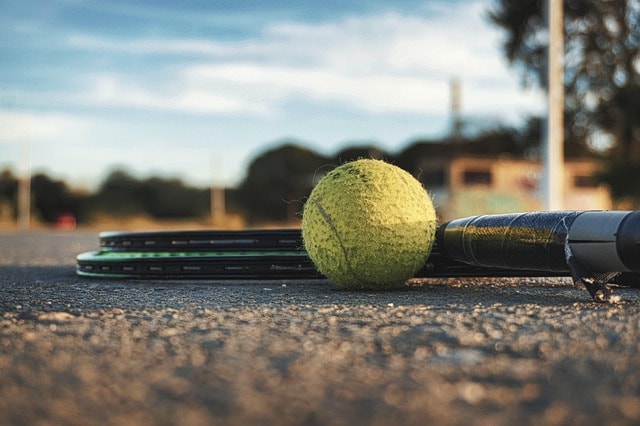
Active hobbies have their own patterns. With sports, we usually use “faire de” or “jouer à”.
-
Je fais du yoga tous les matins.
-
Je joue au foot avec mes collègues.
-
Je fais de la natation depuis 5 ans.
-
Le week-end, je fais de la randonnée.
The verb faire is versatile and used in various contexts, such as faire de la natation (to go swimming). To express playing team sports like basketball, we use jouer à. For example, jouer au basket means to play basketball.
Key expressions:
-
du vélo – biking
-
de la danse – dancing
-
de l’escalade – climbing
-
du ski – skiing
-
jouer au tennis / au basket / au foot – to play tennis / basketball / soccer
✈️ Traveling and Exploring

Wanderluster? Here’s how to say that:
-
J’adore voyager.
-
Je découvre de nouveaux endroits dès que je peux.
-
J’aime organiser des road trips avec mes amis.
-
Je préfère les voyages à la montagne que les vacances à la plage.
Exploring new places during your leisure time can greatly enhance your language learning experience by providing cultural context and relevant vocabulary.
And some travel-related vocab:
-
un voyage – a trip
-
une destination – a destination
-
les vacances – vacation/holidays
-
faire du camping / du tourisme – go camping / sightseeing
You may also like: The 20 Best Sites to Follow The News in French
🧘 Relaxing Hobbies and “Doing Nothing”

Let’s be real—not all hobbies have to be productive.
-
J’aime ne rien faire le dimanche. (I like doing nothing on Sundays.)
-
Je passe du temps à rêvasser. (I spend time daydreaming.)
-
J’adore prendre un bain chaud et écouter de la musique.
-
Je médite tous les soirs avant de dormir.
Leisure pursuits can include relaxing hobbies like these, providing enjoyment and opportunities to practice language skills.
Yes, being lazy can be a hobby. And it’s totally valid in French too.
💻 Creative & Productive Hobbies
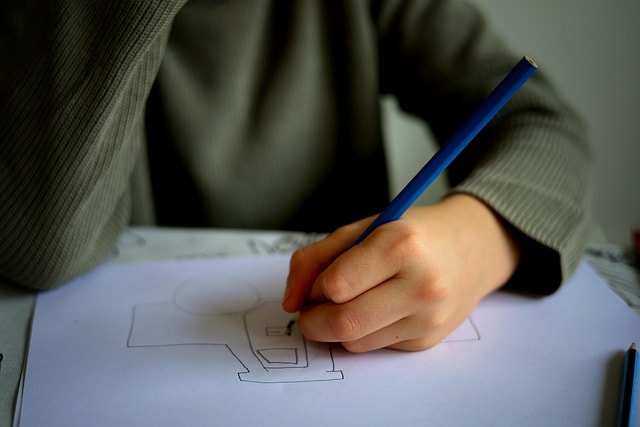
Got a side hustle or crafty passion? Here’s how to talk about it.
-
Je fais du dessin / de la peinture / du tricot.
-
Je crée des vidéos sur YouTube.
-
J’apprends la photographie.
-
Je fais du jardinage.
Artistic hobbies are widely cherished and popular activities globally, and mastering specific verbs related to these hobbies is crucial for effectively articulating your interests in French.
Also useful:
-
écrire un journal – write a journal
-
bricoler – DIY/home projects
-
apprendre une langue – learn a language
-
programmer / coder – code
🧩 Hobbies That Are a Bit Niche (But Still Cool!)
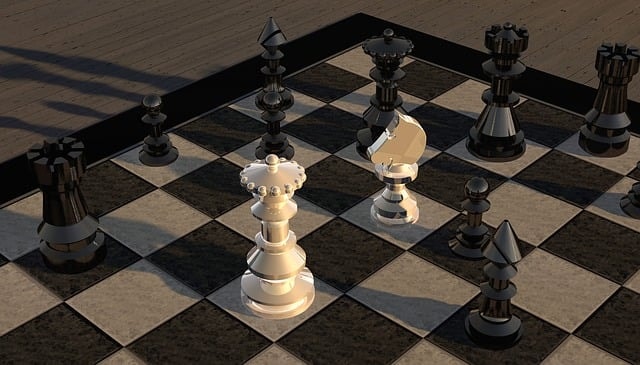
Maybe your thing is super specific. You’re into medieval sword fighting, or birdwatching, or restoring old radios. Own it. Some niche hobbies can also be popular hobbies in certain communities, reflecting the daily lives and interests of French speakers.
You can always say:
-
J’ai une passion un peu étrange… (I have a slightly weird passion…)
-
Je suis passionné(e) par…
-
J’aime beaucoup… même si c’est pas très courant. (I really like it, even if it’s not very common.)
A few unique hobbies in French:
-
la spéléologie – caving
-
l’astronomie – astronomy
-
la poterie – pottery
-
les échecs – chess
Most Common Hobbies in France
France is a country with a vibrant array of hobbies and interests that reflect its rich cultural tapestry. Some of the most common hobbies among French people include sports, music, and various leisure activities.
Sports are a significant part of French life, with le foot (soccer) and le basket (basketball) being particularly popular. Many French people also enjoy playing musical instruments like le piano and engaging in creative activities such as faire du jardinage (gardening) and faire de la lecture (reading).
In addition to these, jouer aux jeux vidéos (playing video games) and faire de la cuisine (cooking) are also favorite pastimes. These hobbies not only provide entertainment but also offer opportunities to connect with others who share similar interests. By learning about these common hobbies, you can expand your French vocabulary and find common ground with French speakers.
Taking a Deep Dive into French Interests
To truly grasp French culture, it’s essential to take a deep dive into the country’s various interests and hobbies. From les loisirs (hobbies) to les passe-temps (leisure activities), there are countless ways to explore what makes French culture unique.
Start by familiarizing yourself with common hobbies and the key vocabulary associated with them. For instance, if you’re a sports enthusiast, learn about le football (soccer), le hockey (hockey), and le basket (basketball). If music is more your style, delve into la musique (music) and discover different instruments like le piano.
By exploring these interests, you not only enhance your language skills but also gain a more nuanced understanding of French culture. Whether it’s through sports, music, or other hobbies, immersing yourself in these activities will make your language learning experience more enjoyable and meaningful.
How to Ask Others About Their Hobbies
Conversation is a two-way street! Ask back:
-
Et toi, qu’est-ce que tu aimes faire ?
-
Tu as des passions ?
-
Qu’est-ce que tu fais pendant ton temps libre ?
-
Tu fais du sport ? Tu aimes lire ?
Including the phrase quels sont tes loisirs is essential in conversations about hobbies, as it helps engage and maintain dialogue with a French-speaking partner.
You don’t have to sound like an interviewer. Keep it chill. You’re just two people chatting about what lights you up.
Add Some Flavor: Useful Adverbs & Expressions
Want to sound more natural? Spice up your hobby talk with these:
-
souvent – often
-
de temps en temps – from time to time
-
presque tous les jours – almost every day
-
le week-end – on the weekend
-
quand j’ai le temps – when I have time
-
ça me détend – it relaxes me
-
je ne peux pas m’en passer – I can’t live without it
-
c’est ma passion – it’s my passion
To use these expressions naturally, remember that more practice is essential, especially when discussing hobbies and sports.
Example:
👉 Je fais de la peinture le week-end. Ça me détend vraiment. (I paint on weekends. It really relaxes me.)
Bonus Tip: Mix Hobbies with Personal Stories
Want to make it even more interesting? Add a little story.
Instead of just saying J’aime cuisiner, say:
👉 J’aime cuisiner, surtout des plats asiatiques. J’ai commencé pendant le confinement et maintenant je fais mes propres sushis !
It makes the conversation more personal—and way more memorable. Mastering hobby vocabulary is crucial as it allows you to engage and connect with others more effectively, making your personal stories even more engaging.
Final Thoughts
Talking about your hobbies in French is one of the best ways to start real conversations, show your personality, and feel more confident.
Expressing your hobbies in the French language fosters richer conversations and cultural connections, enhancing your social interactions and cultural immersion within French-speaking communities.
So next time someone asks “Qu’est-ce que tu fais pendant ton temps libre ?”—you’ll have plenty to say.
And remember: don’t worry about being perfect. Just share what you love, smile, and enjoy the exchange.
If you enjoy learning like this, you’ll love my complete French course!
It’s designed to get you speaking real, everyday French. Check it out here.
À bientôt !
Clémence











